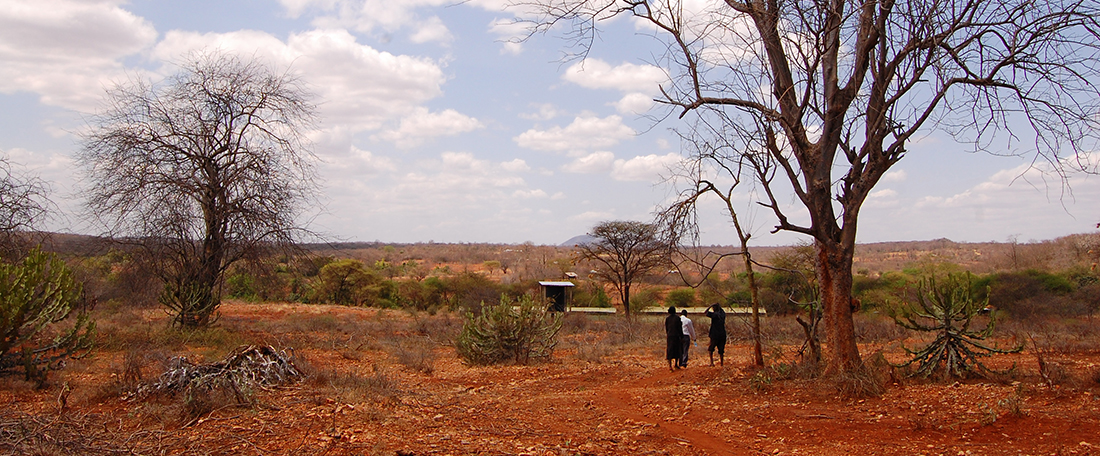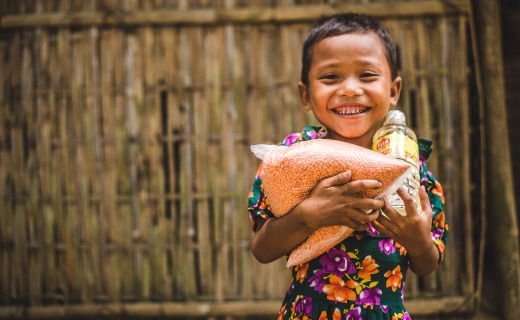Drought in East Africa
Several countries in East Africa are facing drought following multiple poor rainy seasons. Drought, along with economic insecurity, crop failures, livestock deaths, ongoing conflict and climatic shock has led to food insecurity and the need for food assistance for more than 17 million people across East Africa.
The drought and corresponding food insecurity is not as severe in countries where Compassion works as it is in other areas of East Africa. Please join us in praying for the millions of children and families affected.
Ethiopia
In southeastern Ethiopia, 5.6 million people face severe food shortages. The Ethiopian government reports that nearly 10.2 million people are in need of food assistance and 400,000 children are severely malnourished.
As of February 2017, the drought-affected areas were a long way from where our partner churches are located. However, as the drought zone is seemingly expanding, Compassion Ethiopia is monitoring the situation closely and beginning a series of assessments including:
- Conducting special health screenings to check for signs of malnutrition.
- Reviewing school attendance.
- Consulting with caregivers, church leaders and local government bodies.
- Arranging disaster rapid assessments in seven areas where there’s potential need.
Through our holistic child development model, our local church partners know the challenges each child and family face. They are uniquely placed to quickly identify and respond to needs before they become dire situations.
Kenya
Kenya has been experiencing erratic rainfall and prolonged dry spells. About 70 percent of Kenyans are smallhold farmers who grow crops and/or keep livestock. The erratic weather has resulted in reduced crop yield, crop failure and reduced animal pastures, as well as dwindling or drying of many water sources such as rivers, streams and ponds.
The ongoing prolonged drought has resulted in thedeath of livestock and acute food and water shortages. In towns and cities, food prices have gone up by 50 to 60 percent. In February, the Kenyan government declared the ongoing drought a national emergency. The government also projects the number of food insecure people in Kenya will significantly increase from 2.7 million to 4 million by the start of April 2017.
Our 145 church partners and 40,000 beneficiaries are impacted in varying degrees. In the short term, supplementary feeding and medical therapeutic feeding for children and food support to some families is already taking place. Compassion Kenya has also launched a RESPOND Initiative for a short-term food intervention.
Our church partners have been training caregivers in simple farming technologies to preserve and store harvested food, especially grains, instead of selling it all at harvest time when the market supply is high and prices are low. They are also encouraging food diversification to include drought resistant crops such as cassava and reduce reliance on maize.
Pray for East Africa
- Please pray for a good rainy season – pray for rains that penetrate the ground without causing flooding or mudslides.
- Pray for our church partners as they continually monitor how the drought is affecting the children in their care.
- Continue to lift up the country of Ethiopia as they continue to recover from a severe drought in 2015/2016. Pray for wisdom for the government officials and other NGO leaders monitoring the situation.
- Pray for Kenya as meteorologists anticipate rains at the end of March. If the rains are normal, the situation is expected to improve significantly during the next three months.
- Pray for wisdom for our country and regional leadership teams.
Sources: UNICEF, Food and Agriculture Organisation of the United Nations





